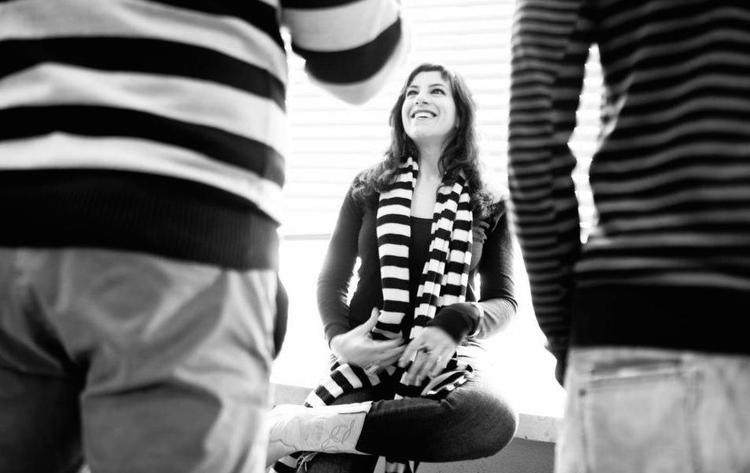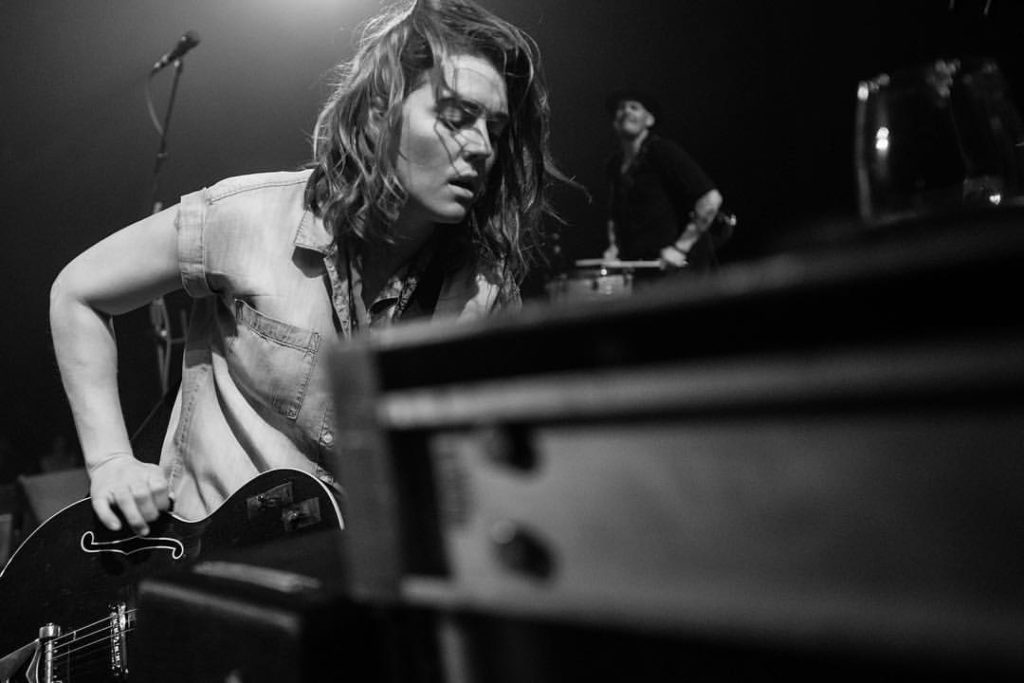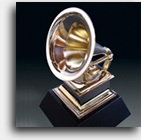Artists Sharing Their Own Journey
In my quest to learn about music marketing I’ve encountered many smart people, some of them music industry professionals, some social media and marketing professionals, and several who are, like me, musicians actively practicing their craft and trying to make it (whatever that means… but I’ll get to that in a minute).
There is something particularly genuine and relevant about advice that comes from another musician. The advice and perspective that comes from industry professionals is valuable too, it’s just coming from a different place. Non-musician professionals have an overall vision of the industry that is uncolored by their own ego and participation as an artist.
But musicians being vulnerable about their own journey – now that’s something immediately relatable to me some of them may have started with some beginners drum lessons and become later talented musicians.
[Tweet “I find the musician as marketer perspective particularly relatable.”]
There are a lot of smart musicians who are actively sharing – mostly for free – what they’ve learned through their own experience, and, through interviews, the experience of other musicians. Basically, what I do.
Here are a few practicing musicians whose blogs, books and podcasts I follow:
- Ari Herstand
- Dave Ruch
- Marcio Novelli and Ross Barber’s Bridge The Atlantic
- Brent Baxter’s Songwriting Pro (AKA Man vs. Row)
- Sean Harley Tucker‘s The Spark and the Art
- Bob Baker’s The Buzz Factor
- Bree Noble’s Female Musician Academy
- Shannon Curtis’ book on House Concerts
If you know more artists who are offering great music career and marketing advice based on their own experience and that of other real, DIY musicians, please feel free to add links to their websites or podcasts to this post in the comments section.
Terra Naomi
I recently had a very productive conversation with a musician of that ilk named Terra Naomi. She gained fame doing covers and originals on YouTube in the mid-2000s, winning the first YouTube Award for Best Music Video in 2006. Her original music video, Say It’s Possible, has over 4.8M views as of this writing, and she has many (hundreds?) other videos of both cover songs up and originals on her YouTube channel.
Terra Naomi parlayed her pioneering DTF (Direct to Fan) success on YouTube into a label deal with Universal Music Publishing and Island Records. Unfortunately, she soon realized that she knew far more about building an online fan base than they did.
Now she’s back doing the indie musician thing, and she just raised over $50K for her next album via IndieGoGo. Terra Naomi also also wants to raise over a million dollars for charity (Finding Your Purpose – check!)
After contributing to her IndieGoGo campaign, I spent two 45 minute Skype sessions (my premium) with Terra Naomi talking about things as diverse as the best way to use YouTube as an indie musician, finding your target market, and crowdfunding tips. She has a lot of experience in the industry in several of different areas, and now offers her fee-based coaching services to other artists, something she has found she loves to do (and I think she is quite good at it). I can honestly recommend her services if you are in need of coaching. [As always, when I recommend someone on this blog, I am not receiving any financial compensation for doing so. No referral fee, no kickback. This is not an advertorial post.]
One of the ideas Terra Naomi and I talked about in particular gave me the idea for this post.
Creating Music For Yourself or Creating Music To Succeed
So, let me start out after that set up by confessing that I have been grappling with my own music and musical purpose for several months. So that was the backdrop which, in part, drove some of my questions for Terra Naomi, in our sessions.
Here are just some of the crippling questions my inner voice asks on a daily and weekly basis. Maybe you can relate.
Why should you bother writing another song (except perhaps for your own personal therapeutic purposes)? There are a million other songwriters, better singers, younger musicians – all striving to make it. No one cares, frankly, about one more.
Don’t you realize the music industry is screwed up? It’s a no win situation, especially for a second-career, older artist. Even if someone in the industry actually noticed your music, in order to succeed in the industry conventionally, you have to surrender your soul to a bunch of label executives and a machine that chews people up and spits them out, broken, exhausted, and abused. And that’s just the men. It’s worse for women.
After five years, haven’t you figured out that doing it yourself is Sysyphean, and takes more money than you have? You can DIY all you want, but the only way to rise above the noise is to hire a marketing agency that knows how to do digital marketing. You know, the ones that work for the labels. You need tens or hundreds of thousands of dollars (if not millions) to make a hit happen.
[Tweet “Here are some of the crippling questions my inner voice asks”]
Isn’t it a bit self-absorbed to make music (or art of any kind)? No one else really cares to hear about your own emotional journey.
Shouldn’t you be writing and producing music to suit the market (pop, country – it’s all formulaic these days anyway), rather than that peculiar, 80s-tinged ballad stuff you and Stevie keep wanting to do? Plus your music is a bit depressing. Can’t you write a happy song (that is actually a question my sister asked me, and, please note that I have recently written a happy song. Finally!)
Shouldn’t you move to Nashville or LA if you want to be serious about this music career stuff? That’s where all the real songwriters and performers collaborate to write the hits. (And the answer is… Nope. Can’t. Got kids here and a former partner – I am legally constrained from moving out of state without his agreement. I’m not going to do that to my 11-year-old son, either).
Isn’t it a bit ridiculous to be worried about your musical “purpose” and “mission” ? People are dying from opioid addiction, 99% of our country is in despair of their economic future, global warming looms, and the American political landscape is fractured beyond repair. Instead of indulging in your One Percenter First World Hobby (creating music), shouldn’t you be volunteering for a charity or doing something useful with the extra time and money your first career and a great deal of lucky timing endowed you with?
Is this a hobby or career? You know, you have to decide and treat it seriously. Go on tour! Hit the college circuit! Apply for songwriting contests! Hire a radio promoter!
I Am Not Fishing
So, just to be clear – I am not fishing for you, dear reader, to give me the answers. Those of you who know me personally, or who have listened to my music, please know that I am not looking for reassurance or platitudes. Don’t feel that you must respond to the questions above – although of course, I always welcome your comments below.
What really I want you all to know is that I have these questions waking me up at night, hammering at my self-esteem regularly. I suspect many of you do too. It seems that self-doubt is a normal condition of the artist. Even among artists who have reached super stardom.
David Bowie on Being An Artist
In 1998, David Bowie said the following in an interview with Charlie Rose (you can find the entire interview on Charlie Rose’s website):
“There’s something volatile, emotive… something that makes me really quite angry about making visual or musical art… Being an artist in any way, any nature, is a kind of a sign of a certain kind of a social dysfunction. It’s an extraordinary thing to want to do – to express yourself in such rarified terms. I think it’s a loony kind of thing to want to to do… The saner and rational approach to life is to survive steadfastly and create a protective home, and create a warm, loving environment for one’s family, and get food for them. That’s about it. Anything else is extra. All culture is extra. Culture is a freebie. We only need to eat… [Art] is unnecessary and a sign of the irrational part of man. We should just be content with picking nuts.”
Boy, I can relate to that! Especially the part about being angry. Sometimes I wish I wasn’t born with this urge to create. Life would be so much saner, so much easier, so much more relaxing and simple. Sometimes I feel driven around by this artist inside, much against my own will.
Bowie also had some advice for artists that I could relate to, though. Maybe it’s not for everyone, but it struck me as freeing, because I struggle a lot with this issue of creating for myself or creating for the market, as I think most artists do.
In talking about his songwriting and composing (Inspirations, 1997), Bowie said:
“Never play to the gallery… Never work for other people… I think it’s terribly dangerous for an artist to fulfill other people’s expectations. I think they generally produce their worst work when they do that. The other thing I would say is that if you feel safe in the area that you’re working in, you’re not working in the right area. Always go a little further into the water than you feel capable of being in. Go a little bit out of your depth. And when you don’t feel that your feet are quite touching the bottom, you’re just about in the right place to do something exciting.”
Of course, he could say that. He was famous. He had made it by being eccentric and true to himself.
Whose Music Career Do You Wish You Had: David Bowie and Brand Carlile
If you’ve read this far, I suspect you are more like me than not.
Now that we’ve established our kinship in frustration, in dysfunction, and in the nihilistic despair that all artists are steeped in, sooner or later… What is the answer?
I don’t think I have a comprehensive set of answers to all those questions, but I did learn something important from my discussion with Terra Naomi.
It’s not about comparing your success to other artists, but it’s about figuring out which artist(s) have careers, lifestyles, and perhaps even artistic products that you want to have.
There are a lot of ways to have a musical career, or to be a musical hobbyist, or even to be a hybrid of the two. The world we live in gives us so many more options today for creating and publicly sharing our music that we don’t have to put ourselves in the conventional box of “signing a label deal.” We can sustain a music career at the level that works for us.
What type of lifestyle do you want to live as a musician? That should inform your goals and tasks more than the blanket idea of “success.” Success means a lot of different things, and commercial success as a musician has been known to ruin a few lives along the way.
[Tweet “Do you want to tour, couch surf, or are you a homebody?”]
Here are a few of the questions I think are worth asking yourself:
- Do you want to tour, couch surf, live the festival lifestyle or are you a homebody?
- How big is your performing “band” – just you? Two people? More?
- Can you do intimate house concerts? Or does the big stadium performance make you less nervous than being 5 feet from your audience, looking right at them while you perform?
- How much does it cost to tour with your performing act?
- Do you want to perform online from your own bedroom or living room?
- Do you want and love the fame, or are you the artistic introverted type?
- Are you more a studio musician or a live performer?
- Do you want to be in your own music videos?
- Have you had your music evaluated by someone professional for licensing possibilities?
- Do you have a personal story or talent that is entertaining/funny/interesting/compelling/unique to share in addition to your music? Can you (have you) articulated that story or talent in writing?
- Do you have a cause or passion you feel strongly about besides music? What non-profit organizations do you already work with – even when your music isn’t involved?
- Do you enjoy producing your own music? Other peoples’ music?
- How much money do you need to live? Do you have a family, or ever plan to have a family?
- How good is your physical health? Can you sustain the rigors of a touring lifestyle? Do you have a drug or alcohol addiction that is amplified by the musical lifestyle?
- How “commercial” is your music? Do you care?
- How “artistic” is your music? Do you care?
- How good are you at working with other musicians?
- Can you teach others?
- Are you open to learning from others?
- Can you take what you like and leave the rest, make an apple pie that works for you, even if you’re not Martha Stewart? Maybe I’m getting to metaphorical, here.
Perhaps it simply comes down to:
[Tweet “Whose musical career do you want to have?”]
For me, and perhaps for some of you, artists like David Bowie are worth emulating.
Not the strung out, druggie David Bowie, but the man who managed to continue making art on his own terms even after he got sober. The man who was married, and stayed married for the second time, at least, and had children and a family. The uncompromising, hard working artist, extraordinarily creative until, perhaps, the day he died. The man who collaborated with other artists, who had artistic visions that were unique and different, and who was, in the end, just another human being.
I’m sure he could be an asshole at times, but in most of the interviews I’ve seen, Bowie comes across as a remarkably humble, introspective and self-aware person. Yet he was uncompromising, hard-driving and demanding of himself, and, I’m sure, of others. Mostly what I admire is that he created remarkable music.
So whose musical career do you want to have?
I would love to have Bowie’s career, but I think that’s not realistic at my age. However, I can emulate the musical person Bowie was, adopt some of his demeanor as a musician, his values, and his attitudes. There are, I’m sure, things about Bowie I would not want to emulate, too, but that’s where I get to choose. I can keep learning new things musically, keep making music, keep working on my performance skills.
You probably have your own musical idols. I would encourage you to ask yourself: Do you really want their lifestyle? Amy Winehouse and Janis Joplin, Prince and Michael Jackson – geniuses – but at what price? I don’t want to be them. Mick Jagger? Nope. I’m not that much of a performance artist and athlete.
Terra Naomi and I talked about Brandi Carlisle a bit – she seems to be someone who has figured out how to have a music career and a life (and a child), and has achieved an envious level of musical success. I’m sure there were sacrifices required of her, and some difficult choices about lifestyle along the way.
I admire those artists who are in their 60s and 70s and still touring, but I sure wouldn’t want to do it. But maybe that life is all you want. While I love performing, fame is not what drives me. I totally respect people who are amazing performance artists, however – people who love to give a good show and be in the spotlight, like Bruno Mars, Taylor Swift, Lady Gaga and Madonna. Globally successful musicians need to be mad good entertainers these days, and you gotta respect the hard work and talent that goes into the performances, not just the music itself. Music Ally just did a great post about the musician as entertainer interview with Georg Herlitz, creative director at a Swedish agency that promotes both YouTube stars and musicians.
The quiet life, writing and occasionally performing, working with really talented studio musicians and producers, and having a family is more my speed, though. Putting out a CD every few years that I can give away to friends and family and at (my few and far between) live performances. That’s perfect for me.
[Tweet “In the end, it’s about the person you want to be.”]
Because I think in the end, it really is about the lifestyle you want to live and the kind of person you want to be.
It’s the way you interact with people and touch the lives of other people that matters – whether it’s millions of people all over the world, like Bowie, or a few hundred or thousand for most of us.







13 comments
Music has always been an integral part of a culture. Only recently has music become marginalized to the point of anyone saying it is unecessary. It gives me the creeps to hear someone say that. I go through the same questions about my writing, poetry and art. I must remember that life without the arts is a half life. Our nuclear society accepts half life as normal but it makes us all poor in spirit, even soulless. Never stop making music if that is your calling. Please. We all need music.
Pam – Thank you for your lovely comment. I think I will be making music my whole life, as I have been, even when I had many other careers and interests. I don’t think I could stop even if I wanted to! I think we share that creative drive, and I think that’s a good thing. I agree, our society needs art.
Sometimes I wish we were just the village idiots, not asking ourselves so many questions… living happily ever after…
But we would probably not be creating art if we were, right ? 😉
Love this article, one of my favorites of yours. Thanks for sharing and keep on Rockin in the free world. We need you.
Thank you, Eric John. I really appreciate this comment. It’s always the blessing/curse thing, isn’t it? But I don’t know any artist (musician, visual artist – whatever) who would have it any other way.
Hey I have just come across this site today for the first time, I bloody loved this read. I am a songwriter in a project called Rozelle. I completely agree with the notion that it’s all about who you want to be.
What is interesting is Bowie explains how Art/ creativity is the product of dysfunction and twists conventional social norms etc. Recently I have been thinking about how Art and Science both use the same part of the brain. They both start at the same place, imagination, yet end up within different spheres.
I guess what I am trying to say is that the art we create is both a summary of the present and maybe the cry of the future. A bit of a cloudy paradox perhaps, but I love the idea of not knowing the actual impact or the importance of creativity and existence. We know that it feels good, so lets keep making one loud and erratic portfolio for generations.
Exactly, Hayley! Thanks for the comment.
Good insights. Sorry for the late reply, Hayley. I agree that art and science use similar parts of the brain, and require both the capacity for structured and looser, more creative thinking as well. I do believe that in music, as in life, it’s all about who you want to be – not who others expect you to be. This, if I may wax profound, is the driving lifelong question of our existence and our purpose. I love the “making one loud and erratic portfolio” comment!
I see you scribe less these days; anyhow, my problem is that most musicians are bullshit, autotuned, liars. Period. Wanting to be rewarded for cheating. Now, what I am stating is my purpose and feeling of fulfillment, rather than just cynical tides. For me, destroying, putting all the lame-lurches to shame is Greatness. It keeps me focused and as well, intuitive and most importantly, never a contradiction. Any award, recognition, disdain I inherit is a direct result of my authenticity. Not for gimmick, not for ploy, but for growth, piece of mind, for pleasure and yes, maybe even for foreplay.
I’m glad to see your site is still up.
I’m coming back online…
– Ss
Right on. I’ve been working my musical art, hence less blogging right now. Thank you for you comment.
So, how busy are you? (Yes, I really want to know).
You know, it occurred to me long ago that where most of the textures on “Absolution” shared subtle commonalities with songs that you may find on an obscure [Steely Dan] album (but dumbed-down progression wise in your album), that other track, “Creations” would have actually been cooler and much closer to that if you had sung over yourself.
Whose idea was it to leave you bland and utilitarian in the mix?
– Ss
Just saw this comment! Thanks for listening to both tracks… I think? What do you mean by “if you had sung over yourself” exactly? Do you mean overdub tracking the same melody or something else?
Awesome blog!
Thank you, Steven.